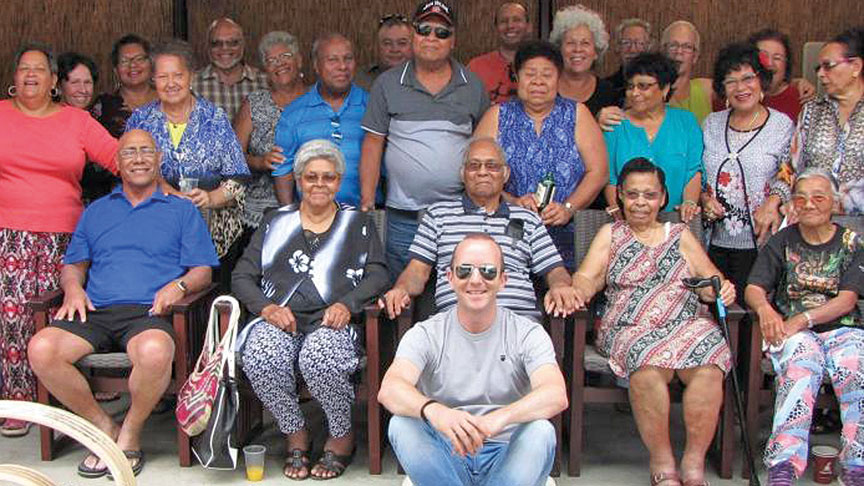Author: Ulrike Scheffer
A sensational discovery
How Professor Péter Maitz is researching the creole language Unserdeutsch.

© privat
It was extreme good fortune that enabled the researcher Professor Péter Maitz to track down a very special language: Unserdeutsch. An Australian linguist had mentioned it in a text. “I had never heard of it and discovered that the language had been neither documented nor studied. This is the kind of opportunity one can only dream of as a linguist.” Unserdeutsch was largely unknown in Germany, as was the context in which it developed. This has now changed thanks to Péter Maitz’s research: the sociolinguist has documented Unserdeutsch over the past few years, which may even help to revive it.
Fewer than one hundred people still speak the language, which has its roots in the period of German colonial rule in the South Seas in around 1900. On an island that was then known as Neupommern (New Pomerania) and is today called New Britain, Christian missionaries had run an orphanage and boarding school for children who resulted from relationships between native women and European or Asian men. The children learnt German at school but would mix it in their everyday lives with their native Tok Pisin, a local contact language formed from indigenous languages and English. Unserdeutsch is thus a classic creole language – but the only one in the world whose vocabulary is based on German.
The linguist who had referred to the language in a publication helped put Maitz in touch with speakers of Unserdeutsch, most of whom now live in Australia, though a few are also to be found in Papua New Guinea. He embarked on his first field research trip in 2015. “The first step was to establish trust and convey to the speakers that I wasn’t simply another white man who had come to pursue only his own interests.”
To this day, the traumas of colonisation run deep in the people there. This is also reflected in their relationship with their language: they themselves call it “falsche Deutsch” (false German) or “kaputtene Deutsch” (broken German), thus considering it inferior. The more neutral term Unserdeutsch is a label given by researchers.
Through the work done by Péter Maitz and the resulting media interest, the speakers of Unserdeutsch have been acknowledged and appreciated. “This has strengthened their cultural identity and also got their descendants interested in their cultural and linguistic heritage.”
About the researcher: Professor Péter Maitz (48) is a sociolinguist who studies languages and their use in a social context. Born in Hungary, he studied German language and literature in his home country and later conducted research in Germany and Switzerland. As a scholarship holder of the Alexander von Humboldt Foundation, the DAAD alumnus is currently a visiting professor for languages and colonialism at Freie Universität Berlin.
